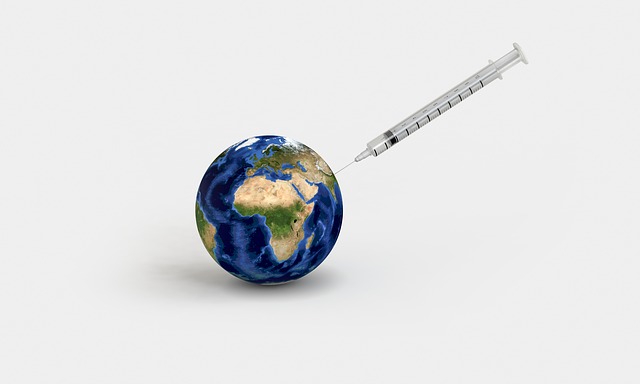By NewsDesk @bactiman63
In a joint World Health Organization (WHO) and US Centers for Disease Control (CDC) report Friday, the number of measles cases climb to a global total of 869,770, the highest number of cases for 23 years.

Global measles deaths climbed nearly 50 percent since 2016, claiming an estimated 207,500 lives in 2019 alone.
Countries that have recently suffered large measles outbreaks include the Democratic Republic of Congo (DRC), Madagascar, Central African Republic (CAR), Georgia, Kazakhstan, North Macedonia, Samoa, Tonga, and Ukraine.
The authors of the report cite a failure to vaccinate children on time with two doses of measles-containing vaccines (MCV1 and MCV2) as the main driver of these increases in cases and deaths.
In 2020, there have been fewer cases, but the COVID-19 pandemic has further set back vaccination efforts, with more than 94 million people at risk of missing measles vaccines in 26 countries that have paused their vaccination campaigns, including many countries with ongoing outbreaks.
“Before there was a coronavirus crisis, the world was grappling with a measles crisis, and it has not gone away”, Henrietta Fore, UN Children’s Fund (UNICEF) Executive Director, said in a statement. “While health systems are strained by the COVID-19 pandemic, we must not allow our fight against one deadly disease to come at the expense of our fight against another.”
Measles outbreaks occur when people who are not protected from the virus are infected and spread the disease to unvaccinated or under-vaccinated populations. To control measles and prevent outbreaks and deaths, vaccination coverage rates with the required MCV1 and MCV2 must reach 95 percent and be maintained at national and subnational levels. MCV1 coverage has been stagnant globally for more than a decade at between 84 and 85 percent. MCV2 coverage has been steadily increasing but is only now at 71 percent. Vaccination coverage against measles remains well below the 95 percent or higher needed with both doses to control measles and prevent outbreaks and deaths.
During 2000–2019, compared with no measles vaccination, measles vaccination prevented an estimated 25.5 million deaths globally.
- Measles case reported in Washington, Possible public exposures at Sea-Tac Airport
- Africa: Malawi eliminates Lymphatic Filariasis as a public health problem
- Philippines COVID-19 cases top 400K, Cebu City to ban Christmas caroling
- Lyme disease: Yale researchers identify protective protein
- Hillsborough County, Florida: Human West Nile virus case prompts Mosquito-Borne Illness Advisory
- Malaysia: 5th human rabies case of 2020 in Sarawak
- E. coli outbreak: 12 people sickened from 6 states
- Illinois COVID-19 cases top 500K, Chicago modifies Emergency Travel Order
- Severe COVID-19 infection appears rare in newborn babies, suggests a new study

